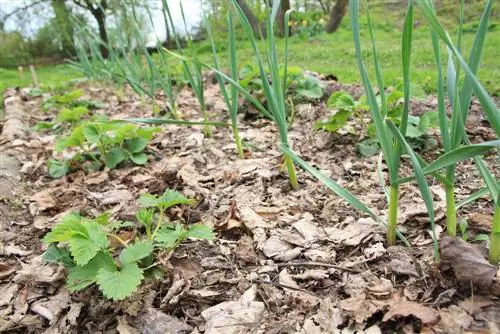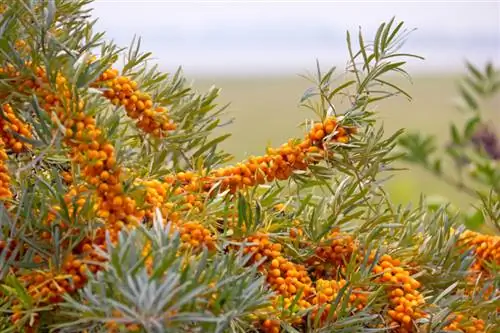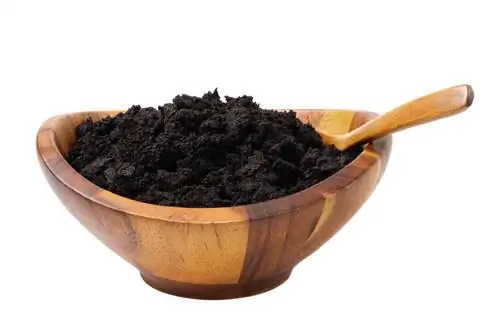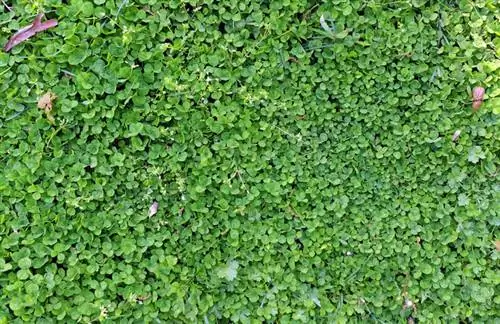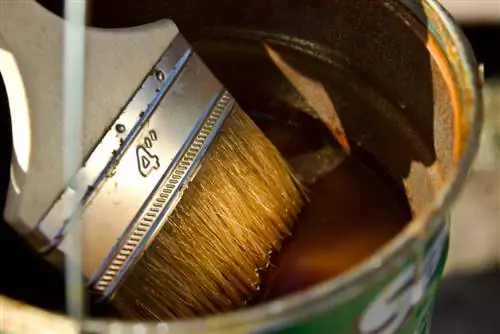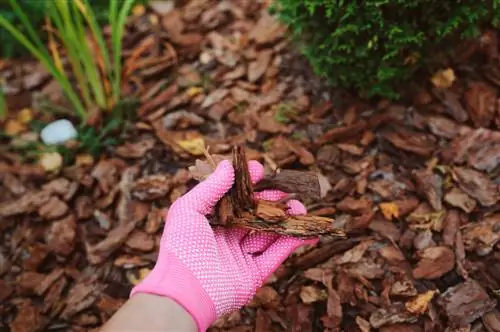- Author admin [email protected].
- Public 2024-01-05 20:48.
- Last modified 2025-01-23 11:22.
Many gardeners deliberately leave the falling leaves lying in the garden. Pure laziness? No, just the opposite. Leaves are the most natural fertilizer you can add to the soil. Find out here how to use the wilted leaves for mulching.
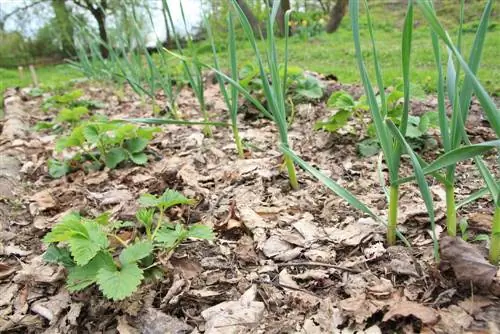
Why should you use leaves in the garden for mulching?
Using leaves as mulch in the garden offers many benefits such as enriching the soil with nutrients, controlling weeds and protecting against frost. Simply collect fallen leaves, let them rest for a while and then distribute them around the garden, possibly shredding them first.
Advantages
Mulch made from leaves is the most cost-effective way to enrich your garden soil with nutrients. By not disposing of the falling leaves, you save yourself the expense of purchasing expensive fertilizers. In addition, there is no more natural fertilizer than organic material. Of course, it also requires much less work not to collect the leaves, but simply to distribute them in the garden. They even reduce the amount of care required in two ways: weeds find it difficult to make their way to the surface of the earth through a dense layer of leaves. If you don't want to struggle with weed removal next spring, simply apply a layer of leaf mulch to your beds.
Frost protection for perennials
- Pick up leaves
- Stick four wooden sticks into the ground around the perennial
- make a fence around the bars with wire
- fill the square with leaves
Turn leaves into mulch
- Collecting leaves
- let it rest for around two weeks
- then distribute in the garden
Little helpers
Small microorganisms come to your aid when decomposing the leaves. These feed on the wilted leaves. They then excrete this again as humus.
What to pay attention to
- Oak, chestnut and walnut tree leaves are usually too large to produce mulch directly from. You should first chop it into small pieces.
- Distribute the leaves in the corners of the garden too. Many animals find winter quarters here.
- Make sure not to pile foliage too high. If moisture forms, the bad weather fungus that causes mildew is very likely to nest.

